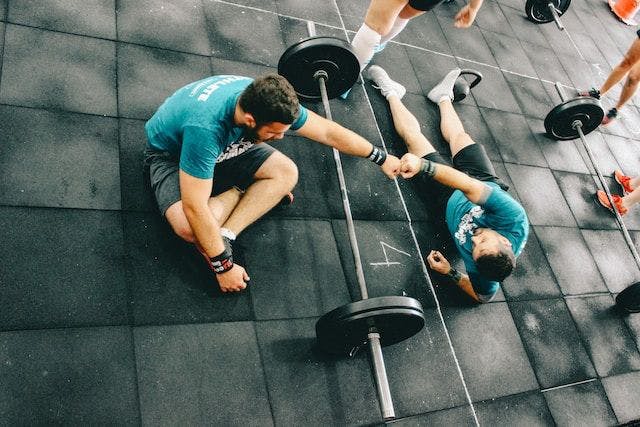If you aspire to be an instructor in personal training, being passionate about athletics won’t qualify you for it entirely. What’s crucial is holding appropriate credentials and ensuring safe, productive sessions with clients individually or in groups. This manual zeros down every aspiring personal instructor’s top 4 qualifications while on this journey. Not only does gaining these essential documents lead to healthy relationships between client and instructor, but it also provides the know-how vital in curating several success paths towards good health.
Top Qualification/Certification Programs
The number of certification programs available may be too much for aspiring personal trainers trying to enter the fitness business. Choosing the program that best meets a person’s requirements and goals might be challenging when so many possibilities are available. If you want to know what is the best personal trainer certification, according to Tyler Read, an NASM-certified personal trainer with over 15 years of experience, then this resource would be helpful. Also, to become a personal trainer, you should enroll in personal training courses to gain the necessary expertise and skills.
Here are some of the best certification programs for personal trainers, along with a brief description of what each program provides and its standing in the field, to help narrow your options.
National Academy of Sports Medicine
National Academy of Sports Medicine (NASM) certification programs are among the most well-known. Fitness evaluation, exercise science, and program design are all covered in-depth in this curriculum. With a focus on evidence-based research, NASM has become a pioneer in the field, and employers and clients highly value its certification.
American Council on Exercise
The American Council on Exercise (ACE) certification program is a further well-liked choice. This program emphasizes practically applying fitness information, intending to assist customers in achieving their objectives securely and efficiently. Aspiring fitness professionals can specialize by earning one of ACE’s several certifications, such as group fitness teacher, health coach, or personal trainer.
American College of Sports Medicine
Another well-known certification program that provides a thorough education in exercise science and sports medicine is the American College of Sports Medicine (ACSM). Employers frequently demand ACSM certification when hiring personal trainers since it is seen as a sign of professionalism and subject-matter knowledge.
International Sports Sciences Association (ISSA)
The International Sports Sciences Association (ISSA) certification program is well-liked for those who want to become personal trainers. ISSA provides aspiring fitness professionals with a flexible online learning environment that enables them to do coursework at their own pace. The program includes many fitness-related topics, such as client assessment, exercise science, and nutrition.
Accreditation
Accreditation is a key consideration when selecting a certification program for personal training. Verifying that a certification program complies with certain criteria and regulations is the accreditation process. It guarantees that the certification is valid and regarded as such in the field. The National Commission for Certifying Agencies (NCCA), Distance Education Accrediting Commission (DETC), and Accrediting Commission of Career Schools and Colleges (ACCSC) are the primary accrediting bodies for personal training certification programs.
Prerequisites
It’s important to fulfill the requirements for a certification program before applying. These include a high school diploma or its equivalent, a CPR/AED certification, and occasionally prior work experience in the fitness sector. If you meet these requirements, you will be well prepared for the program’s curriculum and tests.
Exam Content and Format
Depending on the program, certification examinations’ structure and content might change, but they often consist of multiple-choice questions and occasionally a practical test. Exam subjects include anatomical themes, exercise physiology, program design, and client evaluation. To ace the test and earn certification, studying hard and being well-prepared are crucial.
Conditions for Continuing Education
Maintaining certification in the fitness business requires a commitment to ongoing study. It ensures that personal trainers are current on the industry’s most recent findings, fashions, and methods. Two examples of continuing education requirements are obtaining a certain amount of continuing education units or passing a recertification exam.
Conclusion
Trainers who need to be properly qualified might hurt clients more than help them! To become successful in this career path, students must focus on getting proper accreditation from respected institutions, meeting defined criteria such as specific educational requirements or practical experience time thresholds with clients before taking tests that show aptitude; passing such tests assures competency further bolstered by continued education through further enrichment avenues so one stays fresh while building up dependable clientele lists over time!


Comments are closed.